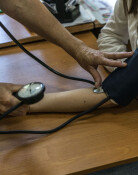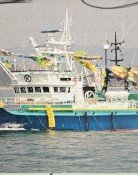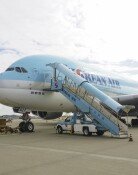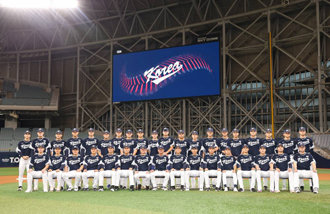Global inbound travelers offset less youkes
Global inbound travelers offset less youkes
Posted April. 06, 2017 07:21,
Updated April. 06, 2017 07:29
As a punitive measure against the recent deployment of Theater of High Altitude Area Defense Missile (THAAD), the number of Chinese group tourists (or youke) fell in recent weeks. Nonetheless, the number of overall foreign visitors rather increased as of March, thanks to higher influx of tourists from Japan and Southeast Asian countries. Still, action plans are urgently required to buffer the significantly rising aftermath of fewer youke since last month.
According to the Ministry of Culture, Sports, and Tourism on Wednesday, the subtotal of inbound tourists for the first quarter was estimated at 3,719,000, up by 3.2 percent year-on-year. While Chinese tourists fell by 9.1 percent to 1,528,000, non-Chinese visitors filled the vacancy. Compared to the same period last year, Korea saw a 21.5 percent rise in Japanese tourists (614,000), 13.4 percent higher influx from Sinosphere such as Hong Kong, Taiwan, 12.7 percent increase from Asian countries such as Thailand, Vietnam, Singapore and Middle Eastern countries, and 8.6 percent higher Americans and Europeans in 2017.
The figures showed that the industry fared well than expected, but statistics show that the Korean tourism industry is not out of the woods yet. For starters, Chinese tourists dropped by 39.4 percent last month alone, when Beijing started to take retaliatory actions. Moreover, growth momentum from Sinosphere (2.5 percent) and Asian and Middle Eastern nations (9.8 percent) also lost heat.
Against this backdrop, the government plans to pull up their sleeves and attract non-Chinese tourists. On this weekend, the Korean ministry will hold the “Korea Culture & Travel Festival” in Hanoi, Vietnam to celebrate 25 years of diplomatic relations. The festival will be followed by tourist attracting events on April 27-30 in Singapore, May in Tokyo, Japan, August in London, England, September in Almaty, Kazakhstan, October in New York, the U.S., and November in New Delhi, India. Furthermore, global advertising campaigns will be launched starting July.
In addition, the ministry set the bar lower for four languages of Thai, Vietnamese, Malay and Indonesian, and Arabic in the tourism interpretation guide tests. What’s more, the government plans to support immigrants acquire the tourism interpretation guide license. Other plans include subsidies for more incentive travels, packages customized to non-Chinese tourists, and holding “Korea Festa” globally.
“We will minimize the China-led shock in the tourism industry by attracting an additional 2 million tourists this year from countries beside China,” said Hwang Seong-woon, chief of International Tourism Policy at the ministry.
Jae-Young Kim redfoot@donga.com
Headline News
- Pres. Yoon addresses the nation at a press conference
- LX Group chairman gifts 100 million won to employee family welcoming quadruplets
- Tax-exempt shared offices in rural areas misused as tax havens
- President-Elect Trump promises 'peace through strength'
- French gambler wins 67.2 billion won by betting on Trump’s election win







